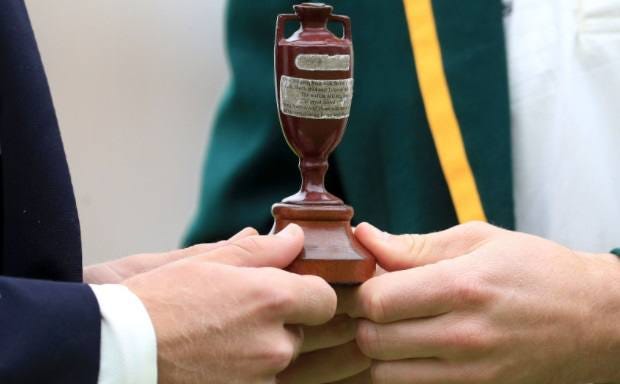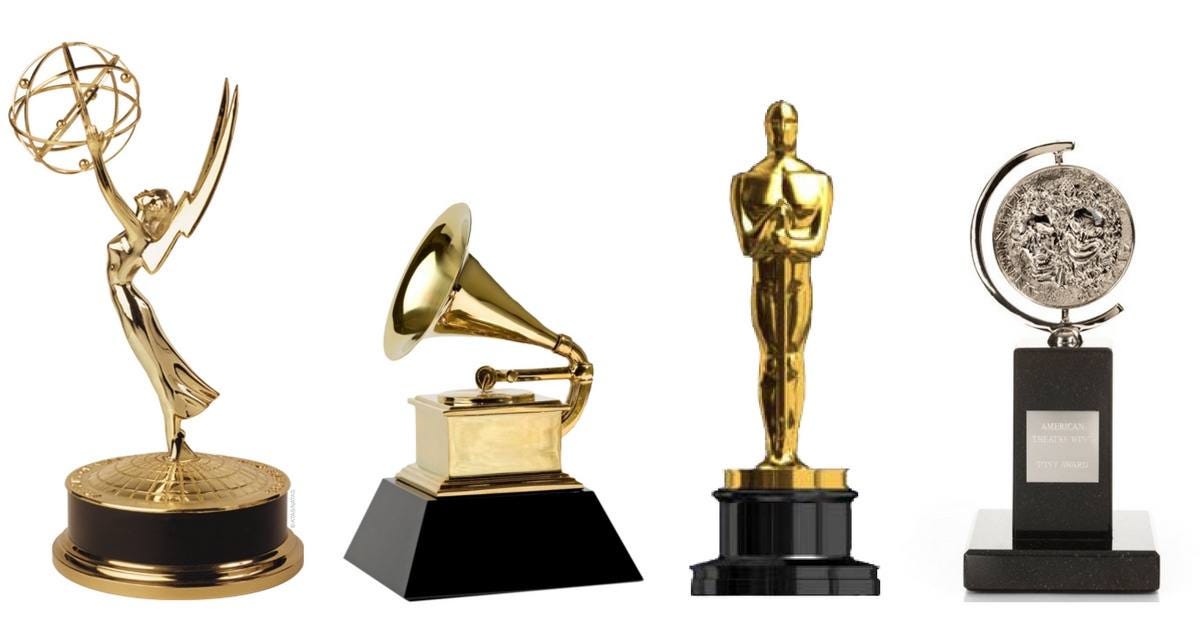At the end of the World Cup final, while everyone was distracted by the bisht placed on Messi, I got the sense that the trophy looked different. It was shinier and tackier; less like the matte object I remembered. Turns out that FIFA doesn't allow the original to be used. It was a gold-plated brass version we saw.
It's still an impressive trophy: unique, substantial, and resonant with history. I started thinking: what is it that makes a great trophy? Why do we give them out in the first place? What does it mean to be the best at something? How do we honour the heroes of the age?
The first trophy I ever 'won' was a small brown plastic shield for participating in an under-11s football competition. It had a detachable fold-out stand that allowed it to be propped up on the mantelpiece, which I dutifully did. Things improved when my Cub Scout team won a tournament and we each got a brass goblet with a marble base. It felt heavy, dangerous even.
Many years have passed since I won a trophy or a medal. Even then it was probably 'won' by simply taking part in a race, not by actually being the best. Many people I know have never won anything, even as children. They don't care, the gifts they offer the world are rewarded in other ways, like human connection.
For most of human history, people have been living in small communities, relatively cut off from each other. Even now, our cognitive limitations mean we struggle to be sociable with more than 150 people.
While I am a fan of city life, I empathise with those who find satisfaction in a small village: tending to their sheep, raising a family, honouring their ancestors, and worshipping the gods. The Banshees of Inisherin shows how violently alienating it is when people look beyond the local community and start aspiring towards world-historical greatness. In a village you are constrained by your community and the labour you need to do to keep the village going. Progress, as we think of it, may as well be a synonym for global interconnection, as trade routes and communication methods gave us awareness of the billions of other souls out there.
In the village of 150 people, everyone has a role to play — multiple roles — so it would have been difficult to feel alienated. In an age of Instagram, young people can compare themselves to the everyone on the planet in terms of wealth, talent, and beauty. No wonder they have turned to the intimacy of BeReal.
Although it is depressing to compete against everyone in the world it is still fun to compete. Basque sports, for example, generally take place in the village, not the stadium, giving everyone a chance to prove themselves. Wouldn't it be nice to re-establish local connections and have, say, a medal for the best blogger in the G1 postcode?
The history of trophies in their current form is surprisingly recent. The word 'trophy' derive from tropaion, a Greek word, that referred to the pile of armour and weapons you stripped off your foes during a battle. Indeed, The Iliad is full of references to Achilles taking enemy helmets. In a martial society, competition means war.
A combination of imperialism and getting too good at killing meant that humanity had to start sublimating war into sport. The British were excellent at formalising sports with well-established rules, but it took the French, with their universalising tendencies, to bring about global tournaments like the World Cup and the Olympic Games.
I am fascinated by the design of trophies. Most are based on a drinking cup or a shield — referring back to the ancients — but others attempt something new or specific to the achievement they are recognising. There are four things that make a great trophy: originality, historical resonance, appropriateness, and aesthetics. Here are some noteworthy examples:
While I was writing this,
published an article on video game addiction that featured this incredibly bleak meme:I realised that what we have instead of village recognition is gamification: patronising little owls, like the one in Duolingo, giving you a gold cup made of pixels. Can our desire for recognition be satisfied with this digital travesty of Homeric glory?















